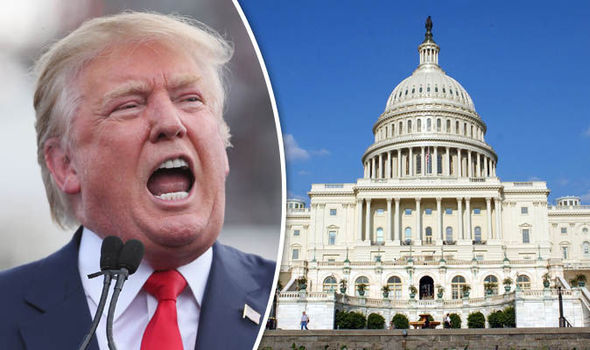Congress is poised to block President Trump’s national emergency declaration, paving the way for the first veto showdown with Trump’s White House.
The collision course was set when Sen. Rand Paul (R-KY) became the fourth GOP senator to say he would vote against Trump’s declaration to fund the U.S.-Mexico border wall.
Paul, speaking in Kentucky over the weekend, said he couldn’t support giving a president “extra-constitutional powers.”
“I can’t vote to give the president the power to spend money that hasn’t been appropriated by Congress. We may want more money for border security, but Congress didn’t authorize it. If we take away those checks and balances, it’s a dangerous thing,” he said.
Paul is the crucial fourth Republican vote needed to pass a resolution blocking Trump’s declaration in the Senate, an embarrassing setback that would force the president to use his first veto of his White House tenure.
Trump’s emergency declaration has left Republicans in an untenable political bind.
GOP senators have been wary of breaking with the president on border security and the wall, which remain a potent political force among the party’s base. But they also worry that his decision will set up a legal precedent that future Democratic presidents will use to ram through progressive proposals on topics such as climate change.
Supporters of the resolution are trying to move the decision on how to vote away from Trump and toward a broader question about separation of powers.
“This is not an issue about whether you’re for the wall or you’re against the wall, or whether you like President Trump or you don’t like President Trump, this is an issue about Congress’s constitutional authority to determine spending. It’s Article I,” said Sen. Susan Collins (R-Maine).
Collins and GOP Sens. Lisa Murkowski (Alaska) and Thom Tillis (N.C.) have already said they will support the resolution of disapproval to block Trump’s emergency declaration.
Collins added that she’s had talks with “many” Republican senators who “are very uneasy about the precedent that the president’s action establishes and who were critical of similar actions that were taken by President Obama.”
Trump announced that he would declare a national emergency the day after Congress passed a government funding bill that included $1.375 billion for physical barriers along the U.S.-Mexico border, well below the $5.7 billion that he requested.
The House passed the resolution to block Trump’s emergency declaration last week in a 245-182 vote, with 13 Republicans joining Democrats to support it.
The Senate will vote on the resolution before they leave town for a weeklong break starting on March 15.
GOP aides predicted the vote would occur next week, with Majority Leader Mitch McConnell (R-Ky.) teeing up a slate of nominations for the Senate floor this week.
Roughly a dozen Republican senators remain undecided about the resolution, paving the way for supporters to potentially pick up more GOP “yes” votes.
Sen. Lamar Alexander (R-TN) used a closely watched Senate floor speech to urge the president to back down from his emergency declaration.
“There is time for the president’s lawyers to take another look and determine whether we can both build the 234 miles of border wall that the president has requested and avoid this dangerous precedent,” Alexander said.
Trump has pledged that he will veto the resolution of disapproval if it gets to his desk and appeared to send a recent warning shot to Republicans thinking of voting against him.
He characterized a vote for the resolution to block his emergency declaration as a “very dangerous thing” because it would undercut border security.
“I really think that Republicans that vote against border security and the wall, I think you know, I’ve been OK at predicting things, I think they put themselves at great jeopardy,” he told Fox News’s Sean Hannity.
